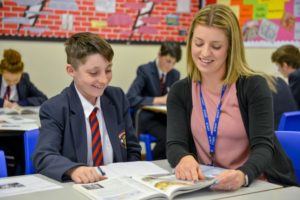As a career educator and now a post-doctoral fellow at the Institute for Advanced Studies in Culture, I see what is at stake as foundational in nature.


Back in the first pandemic summer of 2020, I witnessed considerable clamoring on social media, urging schools not to go back to “normal” once the pandemic ended because “normal”, or business-as-usual in American schools, is, for many students, a less than optimal experience. Regrettably, the call for change permeated the air only but for a moment. Instead, school districts and educators had to determine how to effectively run their schools and classrooms on virtual platforms amidst constantly changing directives and erratic guidelines coming from the federal government and the CDC—all of which made sense at the time. Since our return to “normal,” however, we are seeing alarming trends of chronic absenteeism among students while teachers exit the profession. Although the pandemic certainly is to blame for some of this, none of these problems are new. In fact, we have been battling them for years. As with the great resignation, the pandemic allowed young people and teachers to reassess the meaningless grind of top–down approaches to teaching and learning.
As a career educator and now a post-doctoral fellow at the Institute for Advanced Studies in Culture, I see what is at stake as foundational in nature. One way to avoid bleeding out teachers and re-engage our youth is to shake up the “normal” way of doing things. To do this, teachers and youth need additional respect and autonomy so they can create meaningful, real-world curricula that is centered on youth and turns away from performative, perfunctory, and transactional learning. Recent nationwide surveys have shown two relevant findings. First, students surveyed placed happiness and caring for others above individual achievement. In another survey, youth said they wanted a meaningful curriculum that is relevant to the real world around them. Teachers know how to deliver both things—if we let them.
If you have ever been a teacher, you know that students ask you, “Why? Why are we learning this?” I left teaching when I realized my answers to this question no longer satisfied me (and probably my students too). My responses felt mechanical, empty, and devoid of the kind of meaning that everyone in the classroom was yearning for. I would say things such as, “because you need these skills and this knowledge to get ahead in society, to be able to pursue what makes you happy in life, and, of course, to pass the class!” While all of this is true, it can feel empty to young people because it lacks purpose or connection to the immediacy of their daily lives or the real world around them. Paolo Freire, a famous educational philosopher called our current teaching style, the “banking method.” Without going too deeply into his work, Freire says that our approach tries to “deposit” knowledge into our youth without applying any critical dialogue. Ultimately, this maintains the status quo because students receive information like robots rather than becoming critically reflective and transformational thinkers.
So, what is the state of the current situation? With all the recent demonization of teachers, we first need to understand that our nation’s teachers are highly educated professionals who, next to family and friends, are the most supportive figures in the lives of youth (according to youth). Therefore, we really need to trust teachers. Next, we need to suspend our obsession with the rigid input–output ideas of how learning happens. Teachers and youth should be joint collaborators who design and carry out project-based, experimental activities that have the potential to actually solve real-world problems. Yes, math facts are necessary and so is basic literacy, but the manner in which they are acquired does not have to be frozen in time. We underestimate and over-mandate our teachers and students so heavily that we stifle innovation and creativity on a daily basis. All A’s and high ACT scores are great, but, frankly, a cadre of citizens who know how to sit down and talk through problems facing local communities would be better. This can only happen if we trust not only our educators but the power of our young people to pitch in and help. Instead, our schools have become fossilized institutions that maintain the status quo and deaden the learning experience when what our country really needs right now are engaged, caring, critically thinking, and community-focused citizens who can right this ship.
Amy Laboe is a postdoctoral fellow at the Institute for Advanced Studies in Culture at the University of Virginia.